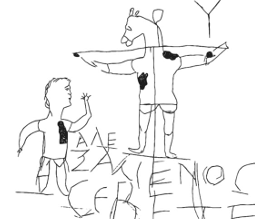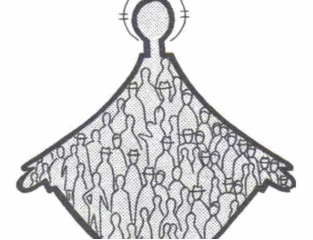A Reparative Act
(Note: The audio version of this sermon includes sharing from the Dear White Christians book group: Ruth Shantz, Shelly Weaverdyck, Max Eckard, Laura Brubacher and Terri Friedline).
There are many beginnings to this sermon, but no endings.
Perhaps much of the Christian life is like this.
We come into our faith as babies, or as children, or as teenagers, or as adults.
We find our soul’s worship in our youth, or in middle age, or after we’ve retired.
We realize what we believe early, or late, or somewhere in between.
Part of all of this is growth: how we are changing, how our church is changing, how our community is changing.
Part of is history: what we have chosen to remember, what we have chosen to forget, what we are able to retrieve, what we need to let go.
So this sermon begins once in 1688 when Mennonites made one of the first recorded arguments against slavery in North America. Mennonites rarely owned slaves, but in the years following 1688 further statements against slavery were also rare.
It begins again during the civil rights era when a group of Mennonite people of color called the larger church to recognize as a religious minority that they should be in solidarity with racial minorities. One of the central figures in this story was our own John Powell, who encouraged White Mennonites to give 500,000 dollars a year to a Compassion Fund “for the purpose of developing and expanding ways of serving the urban poor and minorities in new and more meaningful ways.” John made this call at the Mennonite Church conference in 1969 in Turner, Oregon, and delegates agreed to “respond with a minimum of $6 per member per year”. The church did not keep this promise. Only $160,000 was raised.
It begins again in the different small starts at addressing questions of racial justice over Shalom’s history. One of these has been the variety of book clubs over the last few years. I’ve been a part of book clubs over the last 5 years which have read Drew Hart’s Trouble I’ve Seen, Willie Jennings, Acts, and Jennifer Harvey’s Dear White Christians. This fall other read White Fragility, by Robin DiAnglelo.Rebecca Wyse reads a new book during Black History month each year and has invited Shalomer’s to join her; one of these was Kelly Brown Douglas Stand Your Ground. Another group is currently reading Ibram Kendi’s How to be an Antiracist. There are many other small starts that we have each engaging severally or together. Our bulletin has a box devoted to combating racism. And the Racism Matters group has been meeting regularly since the summer discussing a wide variety of approaches to these questions. We have been active in thinking about these questions especially since George Floyd’s murder. But we also know in response to depth of racial sin in our world that we haven’t been doing enough. How could we?
Today’s service is mostly focused on the book group that read Harvey’s Dear White Christians. This afternoon you’ll receive a proposal from us for consideration at the church meeting on February the 14th. In my reflections this morning I want to report a bit on the book as background for that proposal. Jennifer Harvey has been studying Whiteness for more than 20 years and was actually at Union Seminary at the same time as the new Georgia senator Rapheal Warnock. She is a good friend of mine; she once told me a story of meeting him in a stairway and confusing him with another black student. Her encouragement to own the uncomfortable aspects of our own racial history makes her book quite compelling. For instance she has a couple of exercises that engage what it means to be white. One asks us to identify five unique and positive aspects that we associate with our racial identity. These are racial characteristics we can wholeheartedly celebrate; anything associated with unjust privilege or dominance must be left off the list. I’m going to pause for a second to let you engage this exercise. If you don’t like this exercise you could think about whether or not today’s hymns force a sense of unity.
For the white people listening, did the exercise feel uncomfortable? Jenn doesn’t just write and teach about these issues, she also travels the country talking to churches and other groups and she offers that just about every groups she does this exercise with does feel uncomfortable. The problem is that whiteness is a category separated from history and culture and made into a universalizing normal, so that offering a particular characteristic can be very difficult.
This exercise shows us that whiteness and Black or Hispanic or Native American are not analogous categories. The rising practice of capitalizing Black but not capitalizing white attests to this difference. Race is a construct in which Black has come to mean something but whiteness has been emptied of particular meaning. And so racial reconciliation fails because it assumes a conversation between equal partners, but we know that white and Black people are, in a historical, particular sense, not equal. White people have the privilege of years of unspoken advantage. Black people have endured years of very particular oppression.
The key question in Dear White Christians is the failure of racial reconciliation stated this way, “If, 50 years after Martin Luther King’s assassination we are still struggling to realize reconciliation, might it be possible that what Black Christians were saying then (and have continued to say ever since) is something that white Christians still need to hear today?”
The answer, and this is meant as an answer for white people, is a reparative framework. White people need to find a way to both learn about the history of Black oppression and white privilege and understanding how these have been constructed around the concept of race. Then we need to understand the particular and local oppressions and disadvantages that people of color have endured, and find ways to reconstruct interracial relationships through addressing these histories and structures.
The way that this happened 50 years ago was through The Black Manifesto. Tomorrow is Martin Luther King day, the federal holiday marking his birthday. The sanitized history of Civil Rights movement holds King as the moderate reformer who achieved civil rights in response to white racists on one hand and Black extremists on the other. The reality is that King himself towards the end of his shortened life was increasingly frustrated with government inaction and the intransigence of white people. Just before his assassination he was planning a Poor People’s campaign which would march on Washington DC and demand economic support for all those afflicted by poverty because the civil rights gains that he had achieved were not changing the economic plight of people of color. We think now that Black Power and Civil Rights were separate movements, but the reality was that they shared much in common.
The Black Manifesto of 1969 called for 500 million dollars of reparations, or $15 per black person in the United States. The money would go to a Southern Land Bank, four publishing houses and four television networks, a research center, a skills training center–all projects that would address particular gaps in the lives of Black people and which whites had general access to. It called for blacks to be in charge of the distribution of the money.
The response from White denominations was to be outraged at the revolutionary rhetoric in the manifesto and convinced they were already doing all of the right things through existing programs. A few new programs did begin in the wake of the Manifesto, but they were typically controlled by white people and the traditional power not the people who had been oppressed. The idea that Black people should be in control of how to spend money that they were owed because of centuries of exploitation was seen as an incendiary plot to remove all white people from power.
I have been moving at a very fast pace this morning, partly because it was either that or a 45 minute sermon, but this is the main point I want to make.
During the reckoning of the civil rights era it became clear the ways that systems that had been oppressing people of color worked. This was named by people of color and specific repairs suggested. In response, church institutions just about exclusively controlled by white people rejected these repairs, and engaged in other activities so that they could retain control. Rather than engage in repair, white institutions suggested reconciliation, but the reality is that they reasserted control. I don’t think that all attempts at reconciliation are about control, but I’m convinced by reading Dear White Christians that racial reconciliation that isn’t preceded by reparations is about control. To avoid control whites need to learn our history and how race has been constructed in our contexts, understand its particularity and seek repairs that address the particular gaps we have learned about.
Two things stood out to me most decisively through the process of reading this book: one was need to work at racial justice in ways that I don’t control and the second was the ways that institutional actions have served to delay and control attempts at racial justice. I long for a way that we can lead with action, not needing to get all of our words right.
And so we talked in our group about a way that we could engage in something reparative. And we are going to suggest that we free up 30,000 from our bank account to do this work. This is a small enough amount that it doesn’t need to be preceded by a discussion about the nature of the foundation fund. But it’s money that could do something. We’ll propose that we commit it to a reparative act, which isn’t an apology, or anything other than a beginning, after so many other beginnings. We’ll propose that John Powell choose a group of people to spend it, who aren’t us. And we’ll propose invited anyone who wants to to join us. Our goal will be to do something, but to do it by giving up control. I invite others in our book group to talk abut ideas that emerged during our study that are important to them.



0 Comments